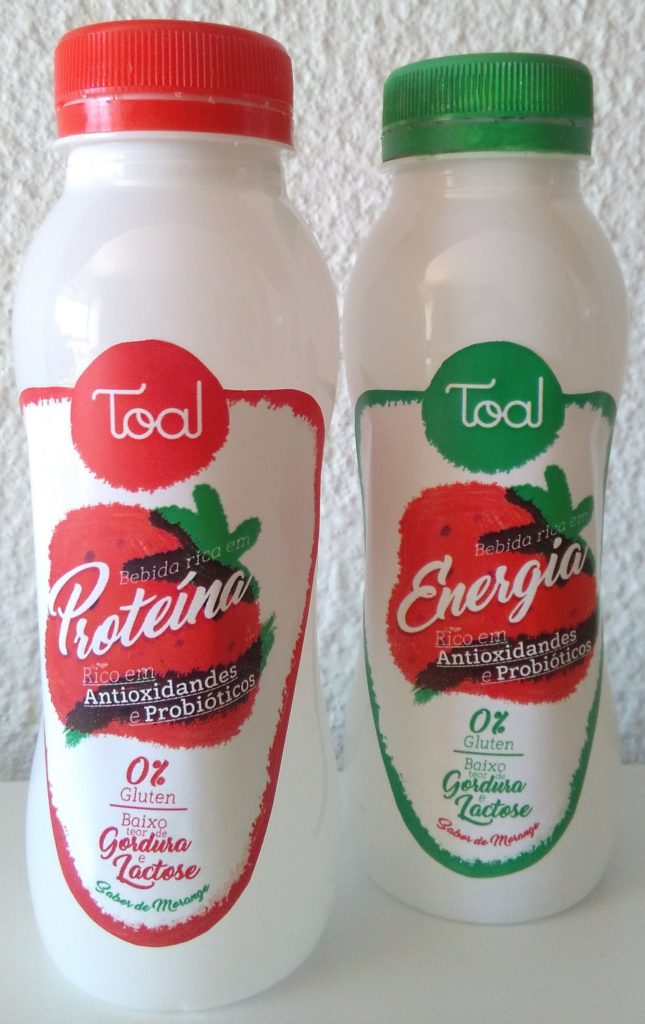 The objective of transforming by-products from the cheese and fruit and vegetable industries into healthy and nutritious foods was the starting point for the development of the “Toal” range, consisting of two totally natural eco-drinks, without coloring or preservatives.
The objective of transforming by-products from the cheese and fruit and vegetable industries into healthy and nutritious foods was the starting point for the development of the “Toal” range, consisting of two totally natural eco-drinks, without coloring or preservatives.
The equation for making the new products, formulated by a group of Master's students in Food Safety at the Faculty of Pharmacy of the University of Coimbra (FFUC), includes excess whey from the manufacture of cheese, a very polluting by-product, and strawberries that do not have any sufficient caliber for sale to the final consumer, the so-called “ugly fruit”.
Within the scope of the project, two innovative drinks were developed, similar to liquid yoghurts and fruit juice, which only differ in content: one with a protein character and the other with energy.
In common, explain the authors, Daniela Costa and Rita Martins, «the two drinks are rich in antioxidants and probiotics, which help to maintain the immune system, and its essential sugars, as well as its small peptides (small easily absorbed proteins ) exert functions at the level of the cardiovascular system, namely in the control of blood pressure.
At Toal Proteica, there is a high nutritional value and biological activity, highlighting leucine, essential in the process of muscle growth combined with a reduction in the accumulation of body fat».
The young women, who were guided by Fernando Ramos, professor and researcher at FFUC, highlight the fact that both drinks are «healthy alternatives for the consumer and that do not harm the environment. On the contrary, in the case of whey from cheese making, we are helping to mitigate an environmental problem, preventing it from entering the water network. In the case of strawberries, by taking advantage of this fruit that is not sold to the final consumer, we are fighting food waste».
Every year the cheese production industry generates large amounts of whey. According to data from the National Statistics Institute (INE), in 2015 658 million liters of cow's cheese whey were produced in Portugal.
According to the students, the great innovation of these eco-beverages is based on the fact that “we make use of all the properties of whey: proteins, water and sugars” and that they do not require a complex preparation process.
Toal eco-beverages have already been tasted by consumers and the reception “was very pleasant”, say Daniela Costa and Rita Martins. The young women have already contacted some investors interested in financing their project, since, they add, “our goal is to create a Startup to market the product. We understand that university students must know how to take advantage of what they have learned throughout the course and have the ability to create their own job».
The development of the “Toal” products also counted on the collaboration of two master's students from the Escola Superior Agrária de Coimbra (ESAC), Vânia Gomes and Elsa Rosário, accompanied by professor Carlos Dias Pereira; and a student of the Polytechnic Institute of Leiria – Caldas da Rainha Hub, Ana Martins Abrantes.
The Toal project participated in Ecotrophelia Portugal 2017, a competition promoted by PortugalFoods and the Federation of Portuguese Agrifood Industries (FIPA), having been ranked second.
Rita Martins dos Santos and Daniela Costa explain what Toal is ecobeverage:
Author: Cristina Pinto (Press Office – University of Coimbra)
Science in the Regional Press – Ciência Viva


















Comments